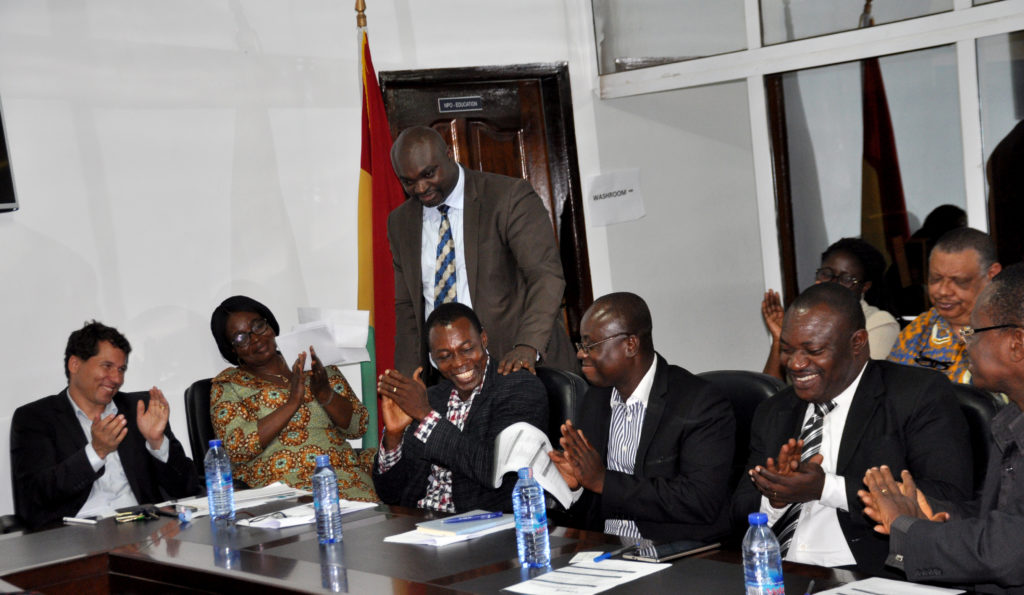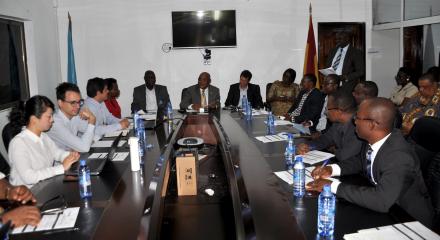The energy was high in the room as Mrs. Patricia Appiagye, Ghana’s Deputy Minister of Environment, Science, Technology and Innovation (METSI) crowned the gathering assembled to celebrate the inclusion of Climate Change and Green Economy into the National School Curricula. Young children in Ghana will be aware of climate change and green economy concepts as they go through school.
The 10-year Climate Change Learning Strategy, a fruit of an extensive and multi stakeholder effort led by MESTI and the Ghana Environmental Protection Agency, lays out 13 priorities that need to be implemented to incorporate climate change and green economy learning into the experiences of the Ghanaian society.

Ghana is an example of the program’s high level of impact at the national level, where the programme has enabled the Climate Change Learning Strategy to prepare future generations with the explanations about what they can do to minimize the impacts of climate change.
The workshop was also an opportunity to share experiences. Mrs. Sarah Natunga from Uganda pointed out that it is extraordinary to see her peers in Ghana face such a challenging issue, and highlighted that the process in Ghana was happening at exactly the precise time. “In Uganda, we included climate change into the primary level school curricula at a point when the curricula was not being revised.” In Ghana, the National Climate Change Learning Strategy coincided with the formal revision of the National School Curricula and the workshop helped formalize Ghana Education Services evident support and compromise with the National Climate Change Learning Strategy.

The next challenge the National Climate Change Learning Strategy will face is Parliament approval and formal inclusion into the country’s strategic framework. There is ample reason for optimism as the National Climate Change Learning Strategy is a fundamental aspect that will contribute to the uptake of the National Determined Contributions (NDCs) that country formalized as per the Paris Agreement.
